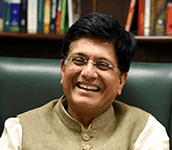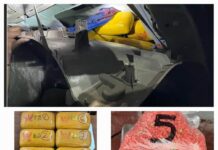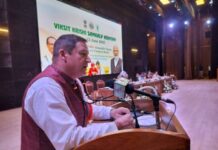MAHY 29: Defence Minister Shri Rajnath Singh today underscored the pivotal role of the Make-in-India initiative in enhancing national security and enabling India’s effective counter-terrorism response during Operation Sindoor. Addressing leading industry figures at the Inaugural Plenary of the Confederation of Indian Industry (CII) Annual Business Summit in New Delhi, the Raksha Mantri emphasized that indigenous defence manufacturing is no longer just an economic strategy—it is a critical pillar of India’s strategic strength.
“Make-in-India is an essential component in our national security architecture, and it played a vital role in the success of Operation Sindoor,” he stated. “Our armed forces were able to launch a precise and effective offensive against terrorism in Pakistan and Pakistan-occupied Kashmir (PoK) because we had strengthened our indigenous capabilities.”
Singh credited India’s homegrown defence systems for the success of the operation, which targeted terrorist infrastructure and military installations across the border. “We didn’t just neutralize terror hideouts, but also struck military bases with calculated precision,” he said. “Our forces showed not only their strength but also their restraint, proving India’s readiness and maturity.”
He also highlighted the significant milestone of the Advanced Medium Combat Aircraft (AMCA) programme, which is set to propel India’s aerospace and defence industries into a new era. The AMCA project, aimed at developing fifth-generation fighter aircraft, introduces a first-of-its-kind Execution Model that will include both public and private sector collaboration.
“This is a bold and historic move,” Singh said. “For the first time, the private sector will play a core role in a mega defence project alongside our public enterprises. The AMCA project will begin with five prototypes and then move into serial production. This is not just a technological leap—it is a national achievement.”
The Defence Minister further noted that such strategic partnerships will be key to making India a developed nation by 2047. He reaffirmed the government’s commitment to “Ek Bharat, Shreshtha Bharat,” asserting that PoK remains an integral part of India and will eventually reintegrate voluntarily into the national mainstream.
Singh concluded by calling for deeper government-industry synergy, highlighting that the future of India’s prosperity, sovereignty, and security lies in strengthening self-reliance through Make-in-India.

















